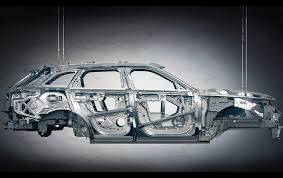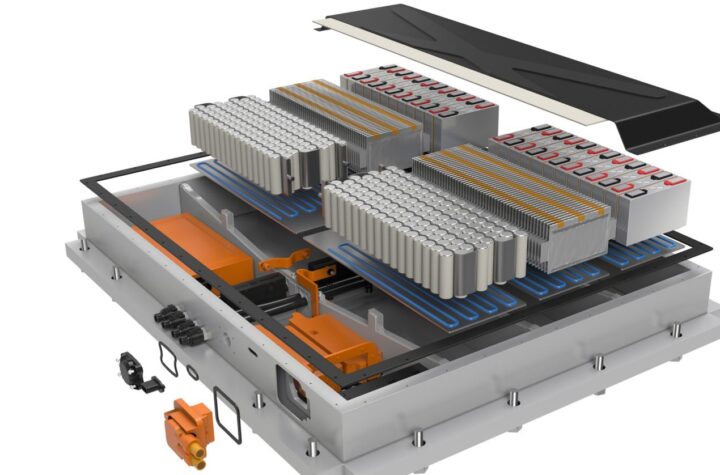
Environmental legislation to control emissions and reduce pollution continues to tighten across the globe. To meet these challenges in the automotive sector, manufacturers are turning to battery electric vehicles, hybrids and more efficient internal combustion engines.
A key concern for developers of these technologies is a simple one: vehicle mass. This critical metric can significantly impact emissions, range and performance, and has led to the now well-established trend of vehicle mass reduction known as ‘lightweighting’. In its pursuit, demand has rapidly increased for lighter materials that are suitable for high-volume production.
This growing need for lightweight automotive components, particularly for alternatively fuelled vehicles, is driving innovation in both materials and production technologies. Meanwhile, the importance of establishing an effective supply chain to validate these new technologies is encouraging greater collaboration within the industry. Technology pioneers, materials experts and the academic world are working together to catalyse technology commercialisation and help the adoption of lightweighting innovations.
These trends are encouraging exciting ventures like RACEForm, a 30-month collaborative project started in November 2017. RACEForm aims to validate Impression Technologies’ innovative Hot Form Quench (HFQ®) Technology for the mass production of complex aluminium components and structures.
The large programme has been successfully led by Impression Technologies and is backed by multi-million-pound funding from the Advanced Propulsion Centre UK, with a total project value approaching £10million. To enable the successful scaling of HFQ, RACEForm is relying on a number of complementary collaborators including Gestamp, Innoval Technology, Brunel University London and Imperial College London.
The significant interest in HFQ Technology stems from its ability to enable faster, less expensive production of complex and lightweight aluminium structures. It offers OEMs significant savings in weight, cost and system complexity through its ability to produce deep drawn, high-strength aluminium alloys with low cycle times, no springback and a level of formability that is just not possible with other techniques. It also helps aluminium compete with steel in terms of affordability – historically a sticking point for widespread aluminium use.
The HFQ process begins by heating an aluminium sheet in an oven. The sheet is then transferred to a high-speed press for simultaneous forming and cold die quenching. This allows the aluminium to be stamped while it is soft and then quenched to ‘trap’ the strengthening capability behaviour of the material. The part is then heat treated to gain high strength.
“RACEForm is enabling us to bring HFQ Technology to high-volume applications,” explains Jonathan Watkins, CEO of Impression Technologies. “It is the world’s leading high-speed process to form deep-drawn and complex shapes from high- and ultra-high-strength aluminium. HFQ is ideally suited to meet the lightweighting needs of manufacturers, enabling them to replace heavy steel or low strength cold-formed aluminium components with a superior alternative.
“To ensure its suitability for automotive applications, the HFQ process has been designed to meet the cycle times required for low-cost, high-volume manufacturing. Perhaps most significantly, HFQ opens the possibility of using highly recycled aluminium grades that cannot be formed cold. In turn, this will have a significant impact on emissions by reducing the need to smelt aluminium.”
Whilst the HFQ Technology has already been successfully demonstrated in various automotive platforms, the RACEForm project is to certify the HFQ part design and manufacturing process in high-volume structural applications. The project has focused on the production of A-pillar components and chassis assemblies for SUVs and electric vehicles to meet specific OEM requirements.
Collaboration has proved to be one of the projects greatest strengths, with each partner addressing specific challenges. Gestamp, a Tier 1 supplier and key collaborator, is proving out HFQ for high production trials. Its trial at the Gestamp Ludwigsfelde hot stamping line facility in Germany achieved a cycle time of less than five seconds for an A-pillar component and subsequent, larger trials at Palencia in Spain.
Meanwhile, Imperial College London is leading RACEForm’s structural adhesive bonding and pre-treatment test programme, where researchers have completed surface pre-treatment and analysis evaluations. They have been supported by Chemetall and Innoval, who have characterised the microstructure and surfaces of samples. The projects self-pierce riveting test programme is being run by Brunel University, alongside structural simulations and the evaluation and modelling of joining methods.
To prove the technology’s recycling capabilities using lower grade aluminium, RACEForm is being supplied with highly recycled aluminium sheet from Jaguar Land Rover’s REALITY project, another Innovate UK funded programme. A testing phase has been planned to confirm that the HFQ process can maintain excellent formability, even with high levels of impurities and analysis of the resulting parts. Early forming trials have been successful.
“We have already demonstrated significant cycle time improvements, as well as potentially substantial reductions in CO2 emissions due to part integration,” concluded Jonathan Watkins. “We’ve been successful in lowering embedded carbon content and reducing production costs. Through the use of HFQ Technology, automotive manufacturers will be able to affordably enhance the range and overall performance of their future vehicles. Our successful volume trial has demonstrated the feasibility of the process, replacing a three-part cold formed aluminium A-pillar component with a single HFQ part while simultaneously reducing the part’s overall weight.”
Overall, RACEForm and HFQ has been a great success for all parties involved.












More Stories
DuPont materials science advances next generation of EV batteries at The Battery Show
How a Truck Driver Can Avoid Mistakes That Lead to Truck Accidents
Car Crash Types Explained: From Rear-End to Head-On Collisions